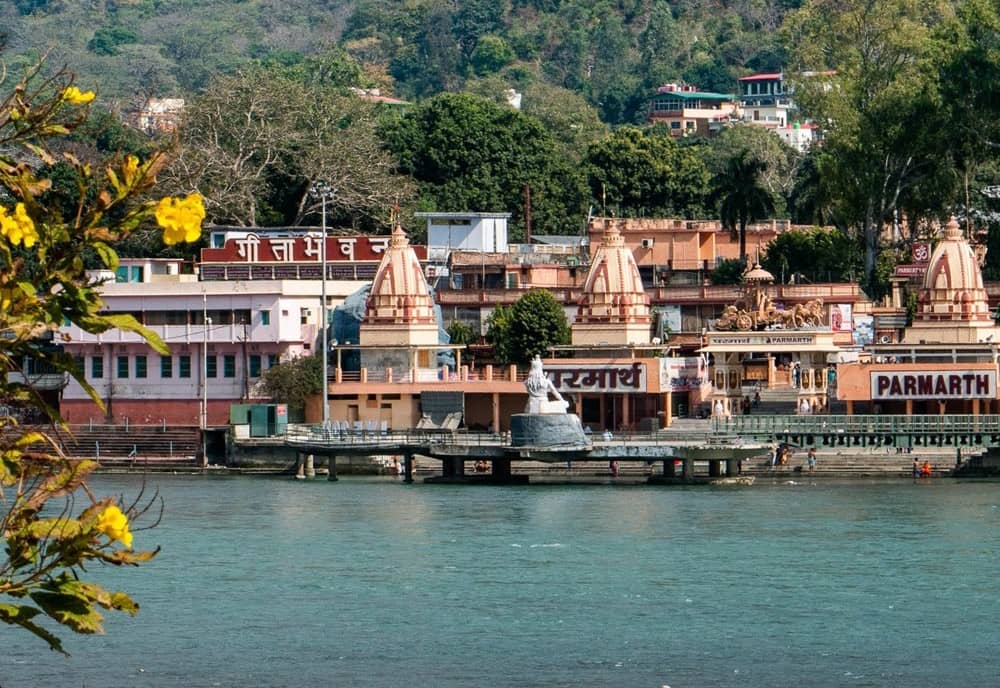India has long been considered the land of spirituality, with its ancient traditions of yoga, meditation, and devotion attracting seekers from all over the world. Among the many sacred cities in India, two places stand out for their deep spiritual resonance – Varanasi and Rishikesh. Each of these cities offers a distinct spiritual experience, but together, they form a profound journey that can awaken the soul.
Varanasi – The Eternal City
Varanasi, often referred to as Kashi (the city of light), is one of the oldest continuously inhabited cities in the world. Situated on the banks of the River Ganges, Varanasi holds a special place in Hindu mythology and is often described as the spiritual capital of India. Its labyrinthine streets, sacred temples, and the constant flow of pilgrims create an atmosphere charged with spiritual energy.
The Sacredness of Varanasi
To understand the spiritual essence of Varanasi, it’s important to grasp its deep connection to the Hindu belief system. It is said that Lord Shiva himself resides in Varanasi, and dying in this city is believed to bring liberation from the cycle of life and death (moksha). The city is a major hub for cremation ceremonies, as people come from across India to perform the last rites of their loved ones on the ghats (steps leading down to the river). The burning ghats, particularly Manikarnika Ghat, are sites of solemn reverence where life and death coexist in a stark yet spiritual harmony.
The Ghats of Varanasi
The Ghats along the Ganges are the soul of Varanasi, serving as places of ritual, worship, and reflection. At sunrise, the river comes alive with the glow of morning light, as devotees take a dip in the holy waters. The Ganges is believed to purify not just the body but the soul. Pilgrims chant mantras, offer flowers, and light oil lamps, creating an ethereal scene that can only be described as mystical.
One of the most profound spiritual experiences in Varanasi is witnessing the Ganga Aarti, a daily ritual where priests offer prayers to the river with a choreographed ceremony of fire, incense, and chanting. The evening Aarti at Dashashwamedh Ghat is a grand spectacle that attracts hundreds of devotees and travelers. The experience is deeply moving as the atmosphere vibrates with spiritual energy, with the holy river serving as a silent witness.
Temples of Varanasi
Varanasi is home to thousands of temples, each with its own significance. Among the most important is the Kashi Vishwanath Temple, dedicated to Lord Shiva. Considered one of the twelve Jyotirlingas (the holiest of Shiva temples), the Kashi Vishwanath Temple is a symbol of divine power and purity. Visiting this temple is often considered the pinnacle of a spiritual journey in Varanasi.
Other notable temples include the Durga Temple, dedicated to the goddess Durga, and the Sankat Mochan Hanuman Temple, where pilgrims pray to Lord Hanuman to remove obstacles from their lives. Each temple exudes an energy that invites introspection, devotion, and a connection to the divine.
Spiritual Practices and Meditation
For spiritual seekers, Varanasi offers numerous opportunities for meditation, yoga, and self-reflection. Many ashrams and yoga centers provide retreats and workshops aimed at deepening one’s spiritual practice. The timeless energy of the city, combined with the presence of the Ganges, creates an ideal environment for spiritual growth.
Whether it’s through silent meditation on the riverbank, participation in ancient rituals, or conversations with wandering sages, Varanasi has a way of dissolving the boundaries between the individual and the universe, offering a glimpse into the infinite.
Rishikesh – The Gateway to the Himalayas
While Varanasi immerses you in the depths of life’s spiritual journey, Rishikesh invites you to ascend into the realm of self-discovery through yoga and meditation. Located at the foothills of the Himalayas and on the banks of the Ganges, Rishikesh is known as the Yoga Capital of the World. It is a place where the serenity of the mountains meets the tranquility of the river, creating a perfect environment for spiritual exploration.
The Spiritual Significance of Rishikesh
Rishikesh has been a center for spirituality and learning for thousands of years. According to Hindu mythology, it was here that sages and saints came to meditate and seek divine knowledge. The name Rishikesh is derived from the Sanskrit word meaning “Lord of the Senses,” referring to Lord Vishnu, who is believed to have appeared here.
Unlike the intense energy of Varanasi, Rishikesh offers a quieter, more introspective spiritual experience. It is a place where you can slow down, connect with nature, and tune into your inner self. The majestic Himalayas stand as silent guardians, while the Ganges flows through the town, purifying the mind and spirit.
The Yoga and Meditation Hub
Rishikesh’s reputation as the yoga capital has attracted yogis, teachers, and practitioners from around the world. The town is dotted with ashrams, yoga schools, and meditation centers, offering courses for everyone from beginners to advanced practitioners. The most famous of these is the Parmarth Niketan Ashram, where the annual International Yoga Festival is held, drawing global participants.
The teachings in Rishikesh go beyond just physical postures. They encompass the spiritual, mental, and emotional aspects of yoga, helping practitioners align their bodies, minds, and souls. It is here that the essence of yoga as a path to spiritual liberation becomes clear. Many travelers come to Rishikesh to undergo a transformative experience, often staying for weeks or months to deepen their practice.
The Sacred Ganges in Rishikesh
While the Ganges in Varanasi represents the cycle of life and death, in Rishikesh, the river takes on a different meaning. Here, the Ganges is a symbol of purity, vitality, and transformation. The Lakshman Jhula and Ram Jhula are iconic suspension bridges that span the river, providing breathtaking views of the landscape and the tranquil waters below.
Rishikesh’s Ganga Aarti is a quieter, more intimate affair compared to the grand ceremony in Varanasi. Held at Parmarth Niketan Ashram, this Aarti involves fewer people, but the experience is just as profound. The sight of the Ganges flowing gently under the evening sky, with the flicker of oil lamps reflecting on the water, creates a peaceful atmosphere that encourages contemplation.
Temples and Ashrams
In addition to yoga and meditation, Rishikesh is home to several important temples that draw pilgrims from all over India. The Neelkanth Mahadev Temple, dedicated to Lord Shiva, is located at the top of a hill and offers a stunning panoramic view of the surrounding landscape. The temple is associated with the legend of Shiva consuming poison during the churning of the ocean, symbolizing the power of transformation.
The Swarg Ashram area is a serene enclave filled with meditation centers, gardens, and quiet spots for reflection. It is an ideal place for anyone seeking solitude and a deeper connection with the divine. The many ashrams in this area offer a blend of spiritual teachings, yoga, and meditation practices, often guided by experienced teachers and monks.
Adventure and Spirituality
Rishikesh is unique in that it combines spirituality with adventure. The proximity of the Himalayas offers numerous trekking and hiking opportunities, allowing visitors to connect with nature on a deeper level. The popular trek to Neer Garh Waterfall or a hike through the Rajaji National Park adds an adventurous element to the spiritual experience.
For those seeking even more excitement, white-water rafting on the Ganges is a popular activity. While this may seem more adventurous than spiritual, the experience of navigating the rapids of this sacred river often leaves participants with a sense of awe and reverence for nature’s power and beauty.
A Journey from Life to Liberation
Varanasi and Rishikesh, while different in their energy and spiritual focus, complement each other beautifully. Varanasi confronts you with the reality of life and death, urging you to seek liberation from the material world, while Rishikesh invites you to embark on a journey of self-discovery and inner peace.
Many travelers choose to visit these two cities together as part of a broader spiritual pilgrimage. The journey from Varanasi to Rishikesh can be seen as a metaphor for the soul’s progression—from understanding the transient nature of life to seeking higher knowledge and self-realization.
Practical Tips for Your Spiritual Journey
Best Time to Visit: Varanasi and Rishikesh are best visited during the cooler months from October to March. Summers can be quite hot, and the monsoon season brings heavy rainfall, making travel difficult.
Accommodation: Both cities offer a range of accommodation options, from budget guesthouses to luxurious hotels. However, for an authentic experience, consider staying in an ashram. Many ashrams offer affordable lodging, meals, and spiritual guidance.
Clothing and Etiquette: Since both cities are deeply spiritual, it’s important to dress modestly and be respectful of local customs. When visiting temples and participating in rituals, wearing traditional Indian attire like a kurta or saree is appreciated.
Transportation: Varanasi and Rishikesh are well-connected by train and road. The nearest airport to Varanasi is Lal Bahadur Shastri Airport, while Dehradun’s Jolly Grant Airport serves Rishikesh. Hiring a local guide can enhance your understanding of the spiritual significance of various sites.
Conclusion
A spiritual journey to Varanasi and Rishikesh is more than just a visit to sacred sites; it is an inward exploration that challenges and transforms the seeker. Varanasi, with its intense connection to life and death, brings forth questions about existence, while Rishikesh offers the tools and environment to embark on a path of inner peace and self-discovery.
Together, these cities provide an unparalleled spiritual experience that leaves a lasting imprint on the soul, reminding us of the timeless wisdom of India’s spiritual traditions and the eternal quest for liberation.









